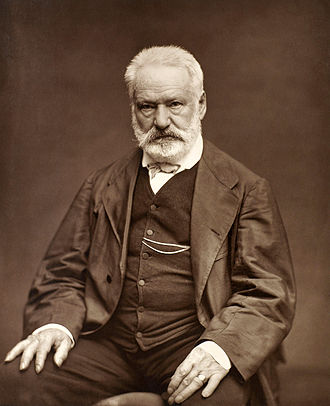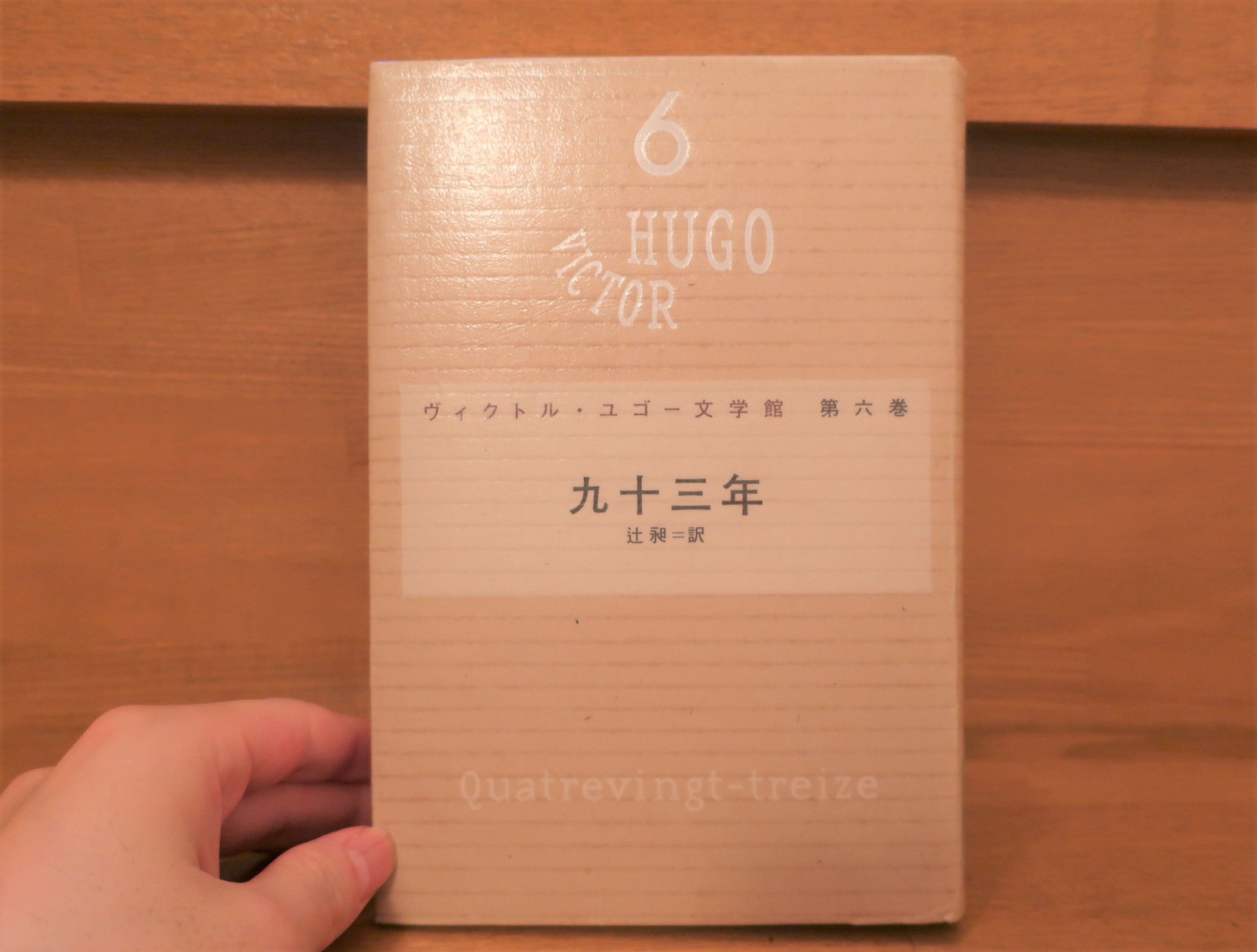Does human love conquer all? Summary and synopsis of Hugo's masterpiece "Ninety-Three Years," Hugo's longest work depicting the turmoil during the French Revolution.

Victor Hugo (1802-1885)Wikipedia.
Hugo's Ninety-Three Years was published in 1874.
I read "Ninety-Three Years" translated by Mr. Tsuji昶 from Ushio Press.
Let's take a look at the synopsis.
Set in 1793, at the height of the French Revolution, during the Revolt of the Vendée, this historical novel is a noble celebration of love for humanity and hope for human progress, while depicting the struggles of a group of people living out their creed and sense of mission.
From Ushio Publishing House HPhttps://www.usio.co.jp/books/works/14301
The year 1793 was the year that the French Revolution, which began in 1789, progressed, King Louis XVI of France was guillotined, and the reign of terror by Robespierre, Marat, Danton, and others began.
It was a fearful time when a revolution that had stood for liberty, equality, and fraternity was now plunging into a period of terror, when people ratted each other out as enemies and sent each other to the guillotine in order to defend their revolution.
Hugo began writing this novel in 1793, the year of such tragic civil strife. The commentary describes its contents as follows.
The first thing we feel when we read "Ninety-Three Years" is the tremendous conflict between the spirit of both progress and conservatism, the spirit of love for humanity, and so on. In this novel, there are three characters, Lantnak, Simurdan, and Gauvin. And various incidents and conflicts unfold. The year "93" is, of course, 1793, when the French Revolution was in full swing, and the three characters active at this time would seem to offer a historical novel. However, this is not a historical novel but rather a novel of ideas that offers various views of the Revolution. Lantnak is the incarnation of the conservative royalist spirit, Simurduan represents the grim spirit of the revolution, and Gauvin is the embodiment of tolerance, tolerance, and tolerance. And Gauvin is portrayed as the epitome of the revolutionary spirit of tolerance and love of humanity. In this sense, the novel is more a novel of ideas than a historical novel.
Ushio Press, translated by Mr. Tsuji昶, "Ninety-three Years", p.382
At first glance, this novel, with its brutal and spectacular revolutionary scenes throughout and the deaths of two republican commanders in the end, may appear to be a work about the horror of fate, similar to "Notre-Dame de Paris". But here, it is only a portrayal of a human being fighting against a tyrannical fate with the sword of "conscience" in his hand. Gauvin, who is tormented by his "conscience" about whether he should save Lantnac, who saved his children (Part III, Book VI, II), reminds us of Jean Valjean's "Storm in the Head" (Part I, Book VII, III) in "Les Miserables," in which he also suffers in the face of his conscience.
Ushio Press, translated by Mr. Tsuji昶, "Ninety-three Years", p.382
Thoughts - From a Dostoevskyian Perspective
This work is not directly related to Dostoevsky.
However, as the above quote says, "The major theme of this work is 'the figure of man fighting against tyrannical fate with the sword of "conscience" in his hand.
The following scene also occurs in the text.
Is there a single person in this world who, when standing on the edge, does not say to himself or herself, "What path should I take now, whether to advance or retreat?
Gauvin had witnessed one miracle at a moment's notice.
Not only earthly battles were fought, but heavenly battles as well.
It's a battle of good against evil.
The world's most horrifying minds have finally been defeated.
What Gauvin had just witnessed was a miracle, for Lantonak was a man of every human vice: violence, delusion, indiscretion, unwholesome stubbornness, arrogance, selfishness, and so on.
The spirit of human love overcame humanity.
The spirit of human love has defeated the spirit of inhumanity. (omitted)
Never have the devil and God been so clearly seen as in this battle.
It was one man's conscience that set the stage for this battle.
He is the conscience of Lantnak.
Ushio Press, translated by TSUJI昶, "Ninety-three Years", p. 332-334
The words, "It was a battle between the devil and God. The stage for this battle was one man's conscience.
Dostoevsky's.The Brothers Karamazov.But similar words appear.
Crime and Punishment."Raskolnikov, the protagonist of the "The Last of Us," suffers because the battle between good and evil is being waged in his mind.
This is truly a universal problem for mankind.
Hugo depicts this against the backdrop of the Vendée rebellion during the French Revolution, while Dostoevsky depicts it against the backdrop of the young man who killed an old woman in Petersburg and the events surrounding the Karamazov family.
And in this work, Hugo declares that human love conquers all, and therein lies salvation.
Ninety-Three Years" is a concentrated work of Hugo's thought.
The above is "Ninety-Three Years": Does human love conquer all? Hugo's masterpiece depicting the turmoil during the French Revolution! The above is "The Ninety-Third Year"!
Next Article.
Click here to read the previous article.
Related Articles





































